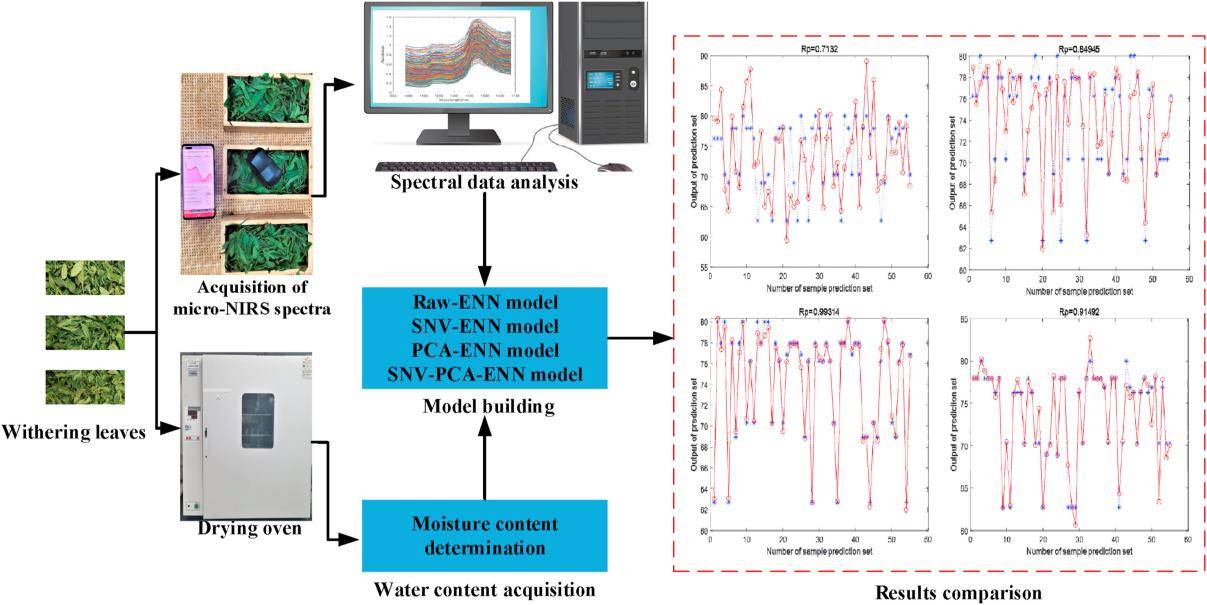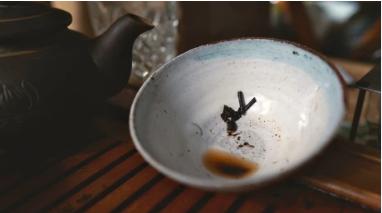The water content of a pound of fresh tea after picking is relatively high, about 70% to 80% of water, and after processing. The water content in tea is generally 3~6%. When the tea water content is around 3%, the tea components and water molecules are almost in a monolayer molecular relationship, which plays a better isolation role for lipids and oxygen molecules in the air, preventing the oxidation and deterioration of lipids. When the water content of tea exceeds 6%, it will make the chemical changes in tea very intense, such as the denaturation and decomposition of chlorophyll, the color becomes brown and dark; tea polyphenols, amino acids, and other flavoring substances rapidly reduced; the composition of the new tea aroma of dimethyl sulfide, phenylethyl alcohol, and other aromatic substances sharply reduced, and a significant increase in the aroma of unfavorable volatile components, resulting in the deterioration of the quality of tea.
 Fig.1. A flow diagram of the experimental process used to assess the wilting degree. (Shen S, et al, 2022)
Fig.1. A flow diagram of the experimental process used to assess the wilting degree. (Shen S, et al, 2022)

The water content of the finished tea must generally be controlled at less than 6%, beyond which it must be dried by re-firing to be preserved. As a recognized leader in tea testing, Lifeasible can help you develop the best tea water content testing solution to improve the quality of your tea effectively. We can help our customers test the water content of in-process and finished tea in all processes of tea production. We offer standard methods for tea water content testing and other ways:
The following is a brief introduction to several water content testing methods that are usually used in our laboratory:
| Tea Water Content Testing Methods | Advantages |
| (103±2)°C Constant Weight Method |
|
| 120°C 1h Rapid Method |
|
| 130°C 27min Rapid Method. |
|
| Electrical Testing Method (including the DC resistance method and AC capacitance method) |
|
Our tea water content testing solution is used to determine the water content of tea quickly, easily, and accurately and it is now widely used in tea processing, storage, packaging, and distribution. Our experts are constantly developing new tea water content measurement instruments based on the nature of tea to meet the requirements of portable, accurate, rapid, and non-destructive testing. If you are interested in our solutions, please contact us for technical consultation and quotation.
Reference
Lifeasible has established a one-stop service platform for plants. In addition to obtaining customized solutions for plant genetic engineering, customers can also conduct follow-up analysis and research on plants through our analysis platform. The analytical services we provide include but are not limited to the following:
July 13, 2024